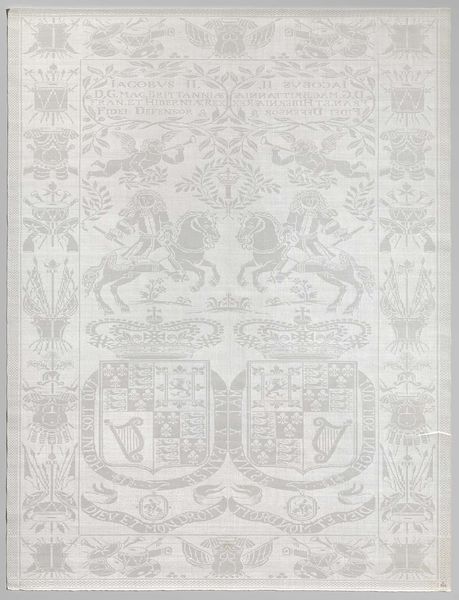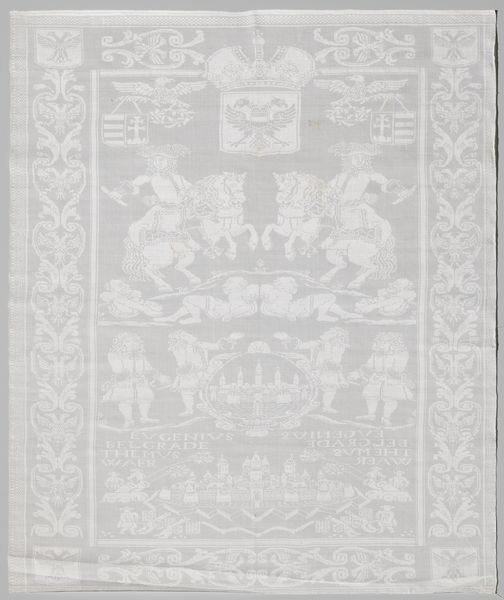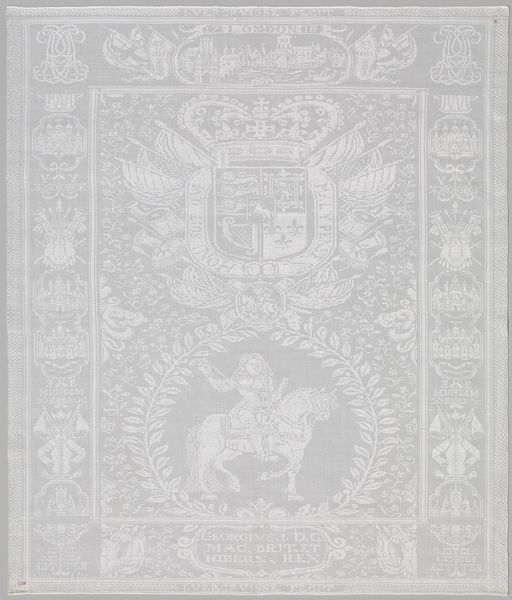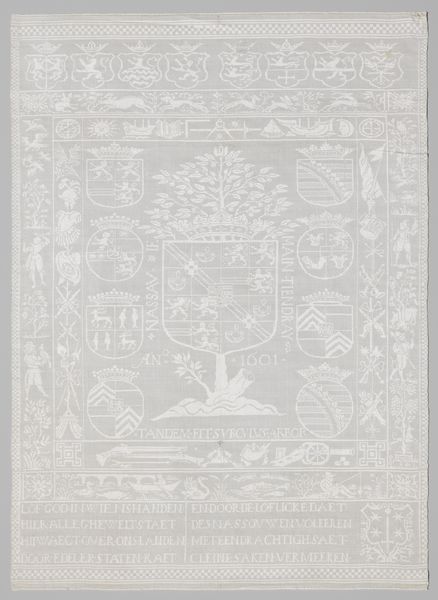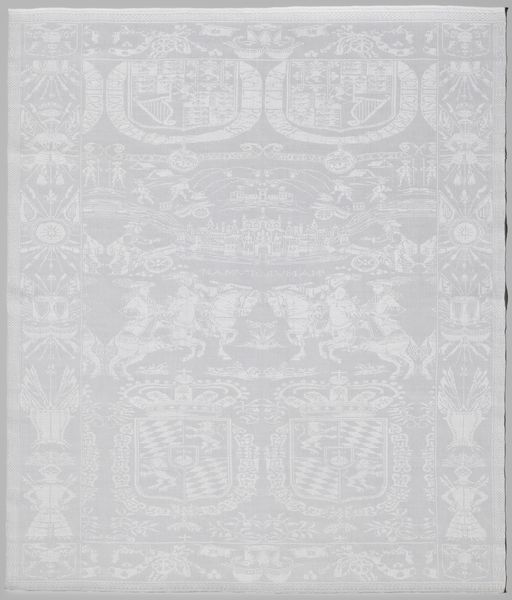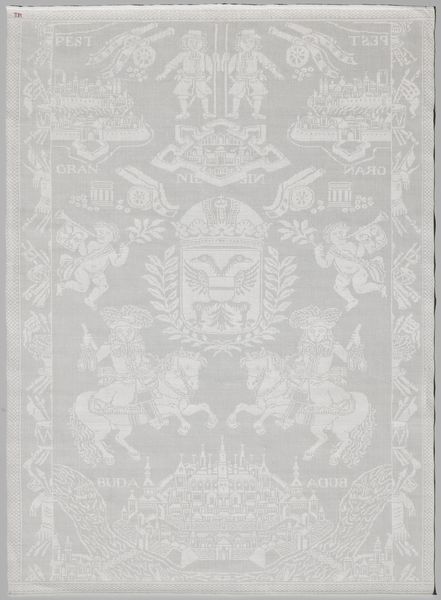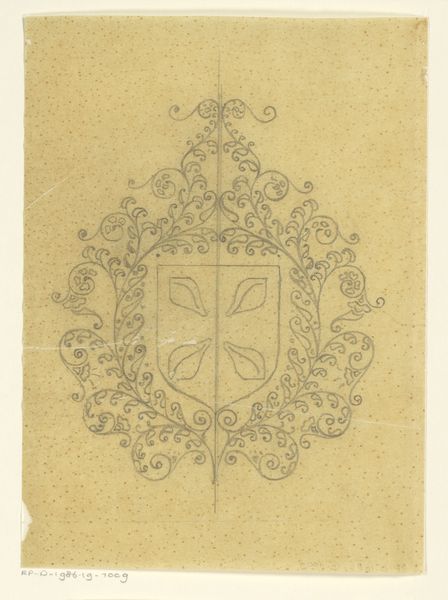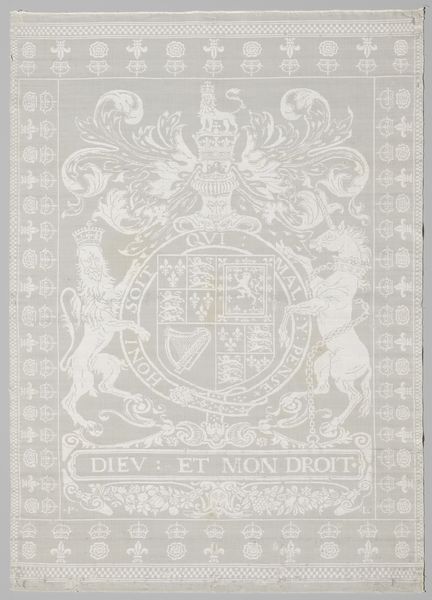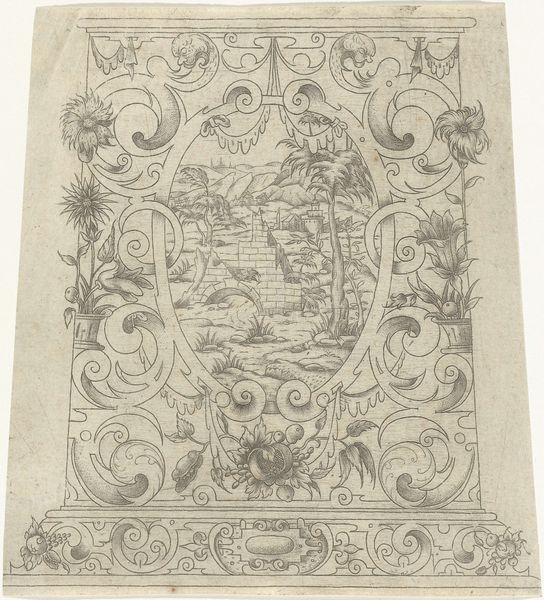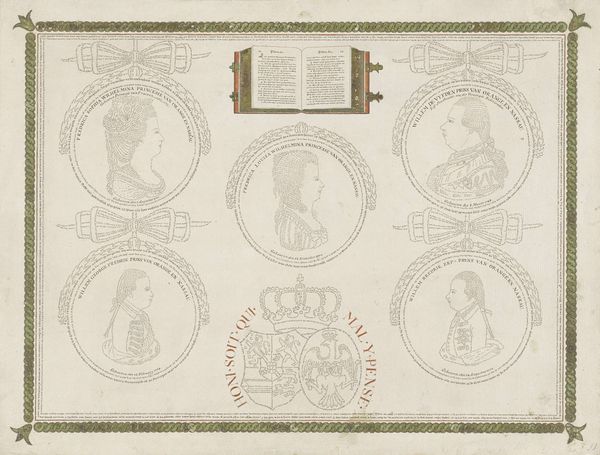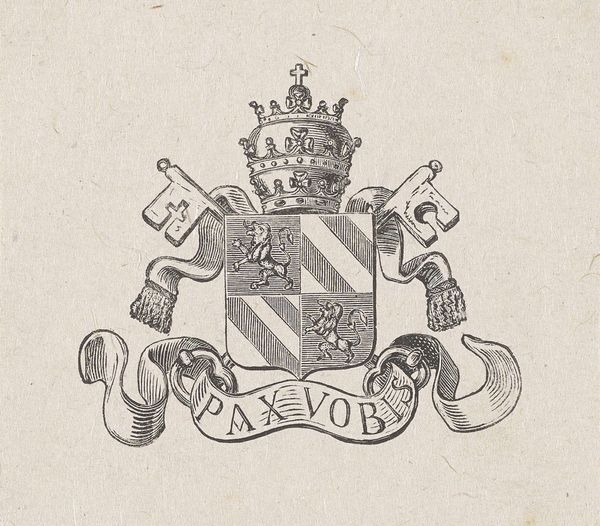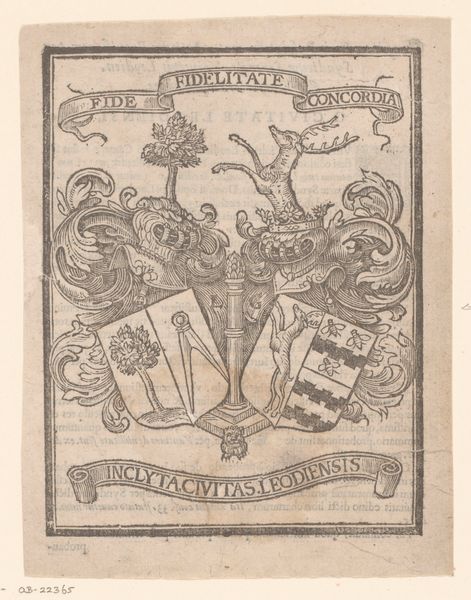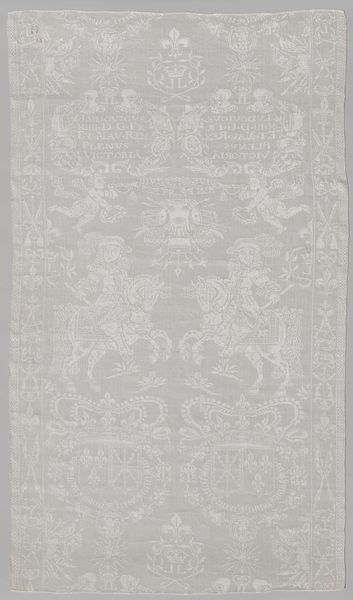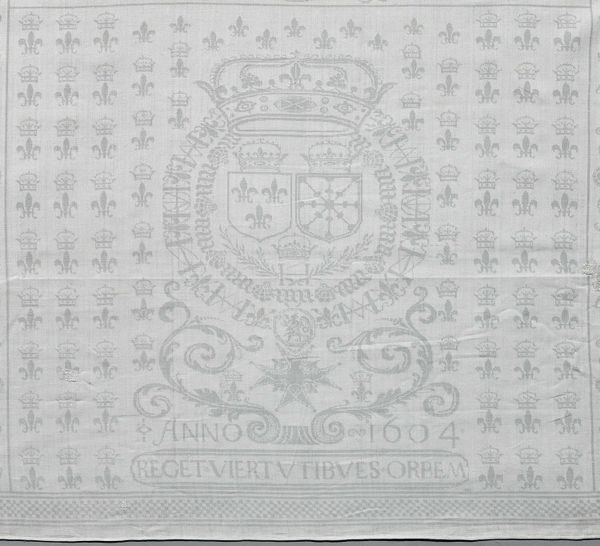
drawing, print, textile
#
drawing
#
medieval
# print
#
textile
#
11_renaissance
#
geometric
Dimensions: length 99 cm, width 71 cm
Copyright: Rijks Museum: Open Domain
Passchier Lammertijn wove this linen damask napkin around 1633. Its pale field is filled with emblems, heraldry, and inscriptions. The overall structure of the napkin is rigorously organized around symmetry and repetition, typical of heraldic designs. The central coat of arms is surrounded by a garter, which gives way to elaborate wreaths and crests. Floral and geometric patterns frame the edges of the design. The Latin motto ‘Tandem Fit Surculus Arbor’ or ‘The shoot will become a tree’ is seen at the base. In semiotic terms, the objects are all signs referring to power, lineage, and identity. The limited tonal range of the linen, where forms emerge and recede subtly from the surface, speaks to complex notions of symbolism and representation. The muted visual language encourages us to consider how textiles of this era functioned not merely as decorative objects but as carriers of cultural and political meaning. Note how the formal elements serve to reinforce the aristocratic values the napkin seeks to celebrate.
Comments
No comments
Be the first to comment and join the conversation on the ultimate creative platform.
